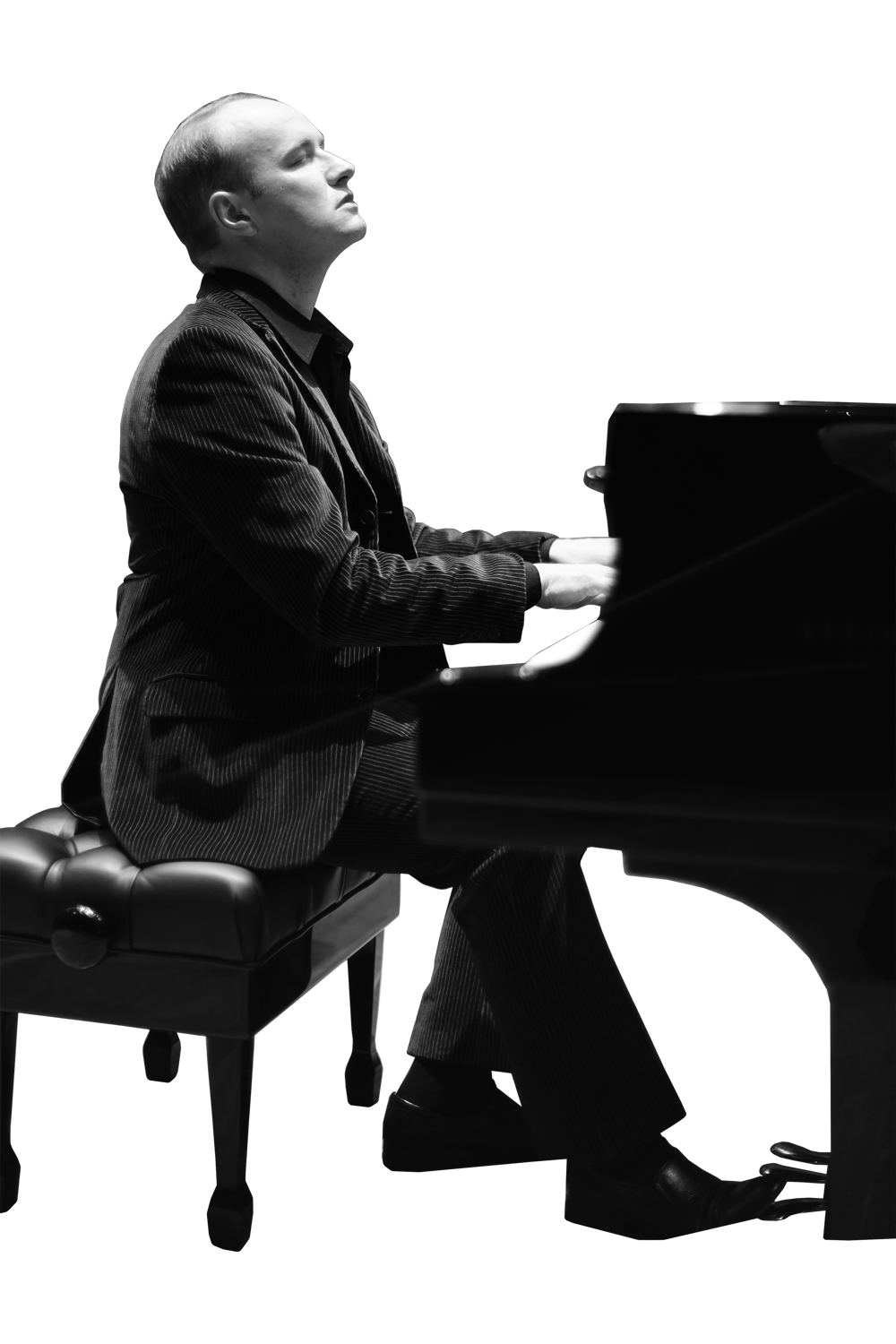Konrad is not only an extraordinary pianist
but also a man with a clear vision of what music education and teaching the piano should be.
He combines extraordinary technical abilities with a deep musical vision and follows the artistic legacy of
Sviatoslav Richter or Emil Gilels, to which his style is often compared.


Renaissance mind
Konrad is fully aware of all the shortcomings of the current music education systems and is super motivated to change the status quo. He puts his skills where his mouth is.


Unique approach
Education with a genuine, unique curriculum which will get back to the basic principles of artistic education. A comprehensive, holistic approach formed by how a student plays and what kind of human being he or she is.


Bridging artforms
Deep analysis of features in poetry or prose draw the students’ attention problems of musical attributes. The analysis of a picture shows perspectives that help in music. A sculptor's approach to hiis art can completely change the students’ thinking in music.
Holistic approach
In his own words:
“Nowadays even in the most prestigious academies both the requirements and the educational processes have been reduced to the purely „instrumental” qualities – we shall call it “craftsmanship”, which is agility, perfection and reliability. If one thinks about it longer, one realizes that these are characteristics of a machines. And these characteristics result in an overemphasis of the means at the costs of goals, but what it should be is, that the goals determine the means. WHAT defines HOW. But observing even the most prestigious universities I can see, that the vast majority of pedagogues and their pupils are focused on „HOW” (to play) without knowing WHAT (despite the fact that in music one always should express what the piece is about). Artistic creation seems to be equivalent with mere mechanic execution. And this is wrong. One should realize that a „conventional formula” of lessons results in „conventional art”- if something like that exists (and it shouldn’t).
Music is a symbolic narration, and not a matter of fast fingers. One should compare pianists’ fingers to paint brushes. A painter should know what he wants to paint. Then he chooses an appropriate brush to do so. Communication, dealing with beauty, all kinds of human emotions and feelings demands a constant development of personality, sensitivity, intelligence, independence, association, awakening of creativity, abstract thought and spiritual growth. All these qualities arise from cultural competence.
We can call an artist someone, who reveals the meaning of existence to the audience. If this meaning is not a priority, it shows that we deal with an instrumentalist only, and not an artist.
I feel a strong affinity with the view of the German philosopher Martin Heidegger. Talking about technique he believes, we cannot separate the words “Techne” from words like poiesis and thesis. Thus technique means revealing, evoking, bringing out of concealment into unconcealment. Heidegger once said that “art is the becoming and happening of truth”. So, technique is about revealing, evoking, about poetic manifestation. But poetic manifestation of WHAT? In fact, this is the crucial factor of my teaching. I believe, that a good teacher should equip a pupil with „cultural” tools, which cause holistic development. One of the pillars of this development is to work on imagination (both intellectual and sound imagination), association / translation of human existence, experience (emotions / feelings) into the musical language, emotional / spiritual analyses of music. Only thus we can talk about music making and – and what is more important – about complex musical education.”
Photo credits: Anita Wąsik, Bruno Fidrych



Konrad Skolarski
"He plays like young Sviatoslav Richter.”
MDR Figaro, April 2016
Konrad started to play the piano at the age of 4 under Professor Marek Mizera. At age 9, he already performed a Bach-Concerto with the Concerto Avenna Orchestra. At the age of 13, he became a laureate of the a piano competition. He continued to study under Janusz Olejniczak and developed his skills with master classes under A. Jenner, S. Perticarolli, H. Nakamura, O. Yablonskaya and V. Krainev. Meanwhile he also studied under the Russian pianist Olga Rusina. In 2001 he won the 1st prize at the International Tchaikovsky Competition in Spain. In 2002 he recorded his debut album.
In 2007, Skolarski graduated from the Fryderyk Chopin Academy of Music in Warsaw under Alicja Paleta-Bugaj and he was also a postgraduate-student of Pavel Gililov. Skolarski familiarized himself with the two centres of the famous Russian piano school – the “Leningrad” school and the “Moscow” one. In later years, Skolarski has been a student of Prof. Peter Feuchtwanger, the mentor of Martha Argerich, Nelson Freire and Shura Cherkassky.
Skolarski recorded several CDs. His solo CD with Rachmaninov, Scriabin and Prokofiev was awarded by the international music critics – Diapason “5” Award as well as a nomination for Fryderyk Award.
Education is his passio and he is currently teaching at the Fryderyk Chopin University of Music in Warsaw. His students are regularly in the upper stages or laureates at international piano competitions, such as Busoni, Warsaw Chopin Competition, San Marino, Hannover Chopin Competition, or Yamaha Scholarship. He gives masterclasses and serves as a jury member of international piano competitions all around the world. His interests include painting, poetry, psychology and philosophy.

